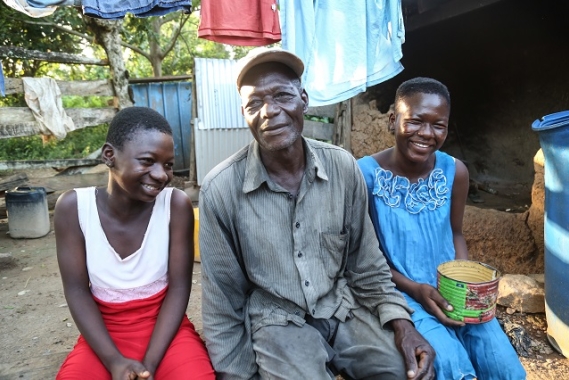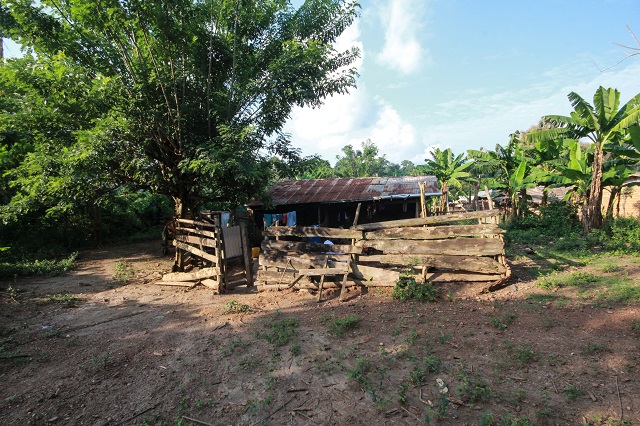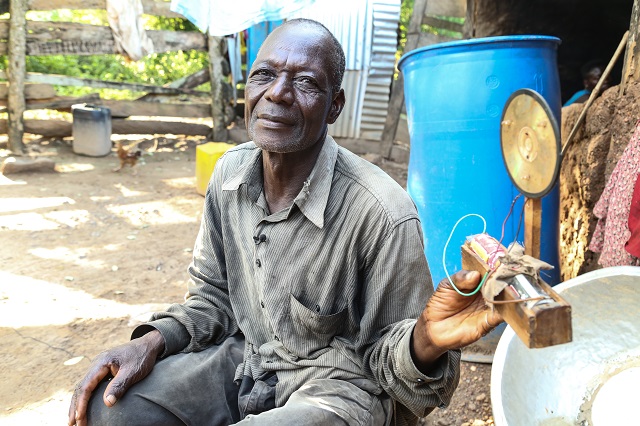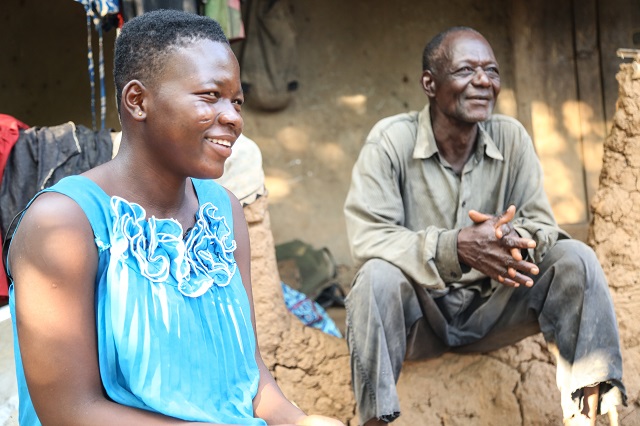A Worried Father

Nyaaba worries for the future of his two youngest daughters and this keeps him up at night. He does not want them to get married young, but money to keep them in school is a real problem. He is 65 years old and feels that time to change his daughters’ destiny is quickly running out.
The family lives in rural Ghana. Three of Nyaaba’s children are married and only Marikah*, 15, and Serwa*, 12, are in his care. Nyaaba provides for them with the rice and maize he plants. His wife died seven years ago.
“When my wife died, Serwa* was four years old, so I had to take care of her from that age,” says Nyaaba.
As the girls grew up Nyaaba continued to struggle to meet their needs. Even buying utensils has not been a priority and the family uses tins for cups; they have no spoons and only own four plates and some old pots.
“I am supposed to give them money for school and for good clothing, but I not able to do that,” says Nyaaba. “They have been wearing torn school uniforms for a long time now. It is just recently that we got new clothes from the government. These are my youngest children and if I am not able to prepare them for the future before I die, they will be lost,” he says. “This thought makes me sad. I do not get any support from relatives or even from my three eldest children. If I had money, I would invest in their education. If they go for higher education, they will find good jobs for a better life,” he says.

Another headache for Nyaaba is the condition of his house. He built the two-roomed mud house over 20 years ago where he raised all his children. Due to a lack of repairs, the house has become a health and safety hazard for his family. The roof leaks and there are numerous cracks on the wall. These days, Nyaaba shares his bedroom with Marikah and Serwa, because one room has fallen into complete disrepair.
“This is the light we use,” Nyaaba says, holding a lamp made of scrap material, its three tiny bulbs powered by three batteries and mounted on a wooden stand. “I bought it at the market. When it is not bright enough my daughters use a torch to do their homework,” he explains.

Marikah is aware that the hardship at home is an obstacle that severely limits her prospects for the future. She is in grade six and math is her best subject. She wants to be a math teacher. Marikah says she needs at least 10 years to complete school and secure a job to become independent. Though her elderly father is in good health, she is concerned his strength to provide for them will not last the 10 years.
“I have been thinking that my father is old and so he will soon not be able to take care of us,” says Marikah. “If he is weak and unable to work, there is no one else to take care of him and my younger sister, and I may have to drop out of school to help other people on their farms, and to carry their harvest to town to earn money. This worries me,” she says.
Girl education is acknowledged globally to have positive effects not only on the individual, but also on the general well-being of society. Education in Ghana is free, however according to UNESCO, girls from poor rural households are less likely to join secondary school due to indirect cost of schooling such as school uniform and school supplies.
Recognizing these challenges, the SOS family strengthening team works with vulnerable families like Nyaaba’s, to increase access to quality primary, secondary and tertiary education and health services, while building the economic resilience of parents. Every intervention is tailor-made depending on the prevailing obstacles.

Marikah and Serwa received school uniforms, shoes and other school supplies. Their house will be renovated to make room for the girls to have their own bedroom with better lighting installed, to create a comfortable environment for homework. The sisters will also get a bicycle to make the eight-kilometre journey they make to school more bearable.
*Names changed to protect the privacy of the children.
Canadians wishing to help vulnerable children are encouraged to sponsor a child, sponsor a Village or make a one-time donation. Your support will change the lives of orphaned, abandoned and other vulnerable children. Please help today.
